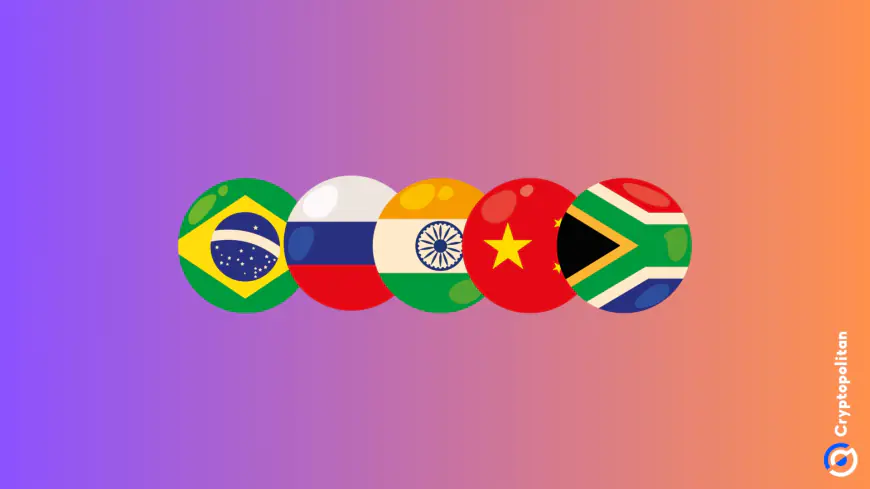BRICS countries approve Kazan Declaration, preparing for UN presentation
The BRICS nations (Brazil, Russia, India, China, South Africa, Egypt, Ethiopia, Iran, and the United Arab Emirates) have officially adopted the Kazan Declaration during their annual summit in Kazan, Russia earlier today. Russian President Vladimir Putin (who is the BRICS president this year) confirmed that the Declaration is ready to be presented to the United […]

The BRICS nations (Brazil, Russia, India, China, South Africa, Egypt, Ethiopia, Iran, and the United Arab Emirates) have officially adopted the Kazan Declaration during their annual summit in Kazan, Russia earlier today.
Russian President Vladimir Putin (who is the BRICS president this year) confirmed that the Declaration is ready to be presented to the United Nations soon.
He confirmed that it includes decisions about expanding the bloc more, alongside a specific focus on international matters. The Kremlin also made it clear that there were no disagreements regarding BRICS’ position on the ongoing Ukraine crisis.
Focus on Ukraine and the Middle East
One of the declaration’s main points is Ukraine. BRICS called for adherence to the UN Charter, pushing for peaceful resolutions through dialogue and diplomacy.
The document mentions that proposals for mediation to resolve the conflict have been acknowledged, though the details remain undisclosed.
The Kazan Declaration also dedicates significant attention to the escalating violence in the Middle East. The leaders expressed “grave concern” over the humanitarian crisis in Gaza and the West Bank, caused by the Israeli military offensive.
Civilians have been killed, and infrastructure has been destroyed, which the BRICS countries condemned. The declaration demands an immediate stop to military actions in these regions.
Sanctions, financial reform, and BRICS’ economic moves
Western sanctions received harsh criticism in the Kazan Declaration. BRICS said its “deep concern” over how unilateral sanctions (especially those imposed without international consensus) are affecting the global economy.
They emphasized that measures like that disrupt trade and undermine the global pursuit of sustainable development goals. Given the makeup of BRICS, with many member countries already under sanction pressures, this isn’t surprising.
The declaration also laid out plans for reforming the international financial system. BRICS wants the current architecture restructured to make it more inclusive and just, particularly when it comes to global economic governance. They believe the system must adapt to better reflect the needs of the world, not just the interests of a select few.
Infrastructure, insurance, and financial innovations
BRICS is exploring the idea of an independent cross-border settlement and depositary structure called BRICS Clear. If successful, this system will stand alongside existing financial market infrastructures but offer a BRICS-led alternative.
Alongside this, the idea of BRICS creating an independent reinsurance company is under review, though participation would be voluntary.
The bloc is also focusing on expanding interbank cooperation mechanisms, promoting innovative financial practices, and developing ways to finance projects in local currencies.
The Kazan Declaration touched on global governance as well. BRICS reaffirmed their support for maintaining a strong International Monetary Fund (IMF) and a well-funded Global Financial Safety Net.
They also recognized the ongoing importance of the G20 in facilitating consensus-driven, productive outcomes. This focus on global cooperation is not new, but BRICS emphasized that the current structures need to be more representative and fair.
The BRICS summit also brought together China and India for a big moment. Chinese President Xi Jinping and Indian Prime Minister Narendra Modi held formal talks for the first time in five years.
The meeting came after a period of tension between the two countries following a deadly military clash in 2020 along their Himalayan border.
Both leaders have agreed to improve communication, with Modi and Xi directing their officials to take concrete steps to stabilize all aspects of their bilateral ties. India also confirmed that a deal has been reached with China to resolve the military standoff in Ladakh, though no details were shared.
What's Your Reaction?









































































































